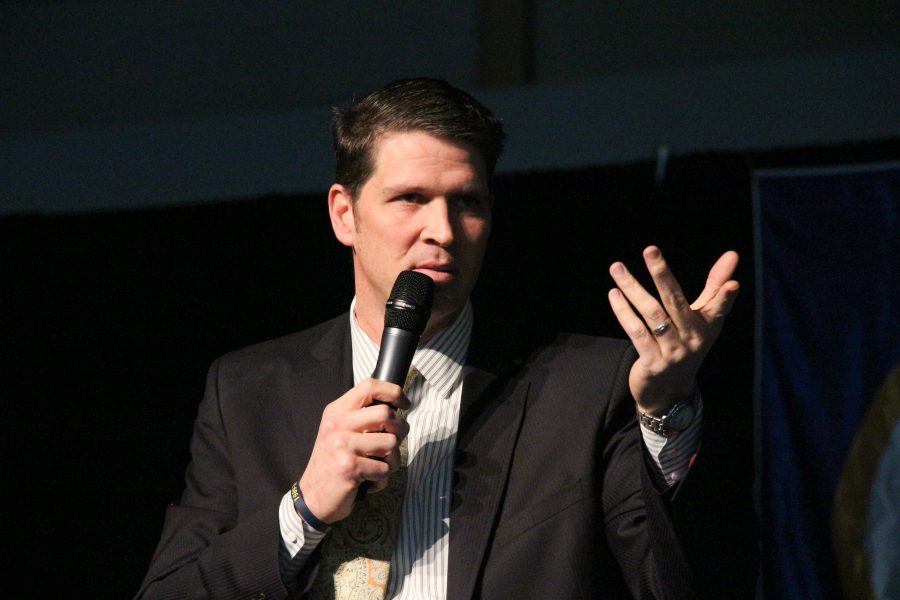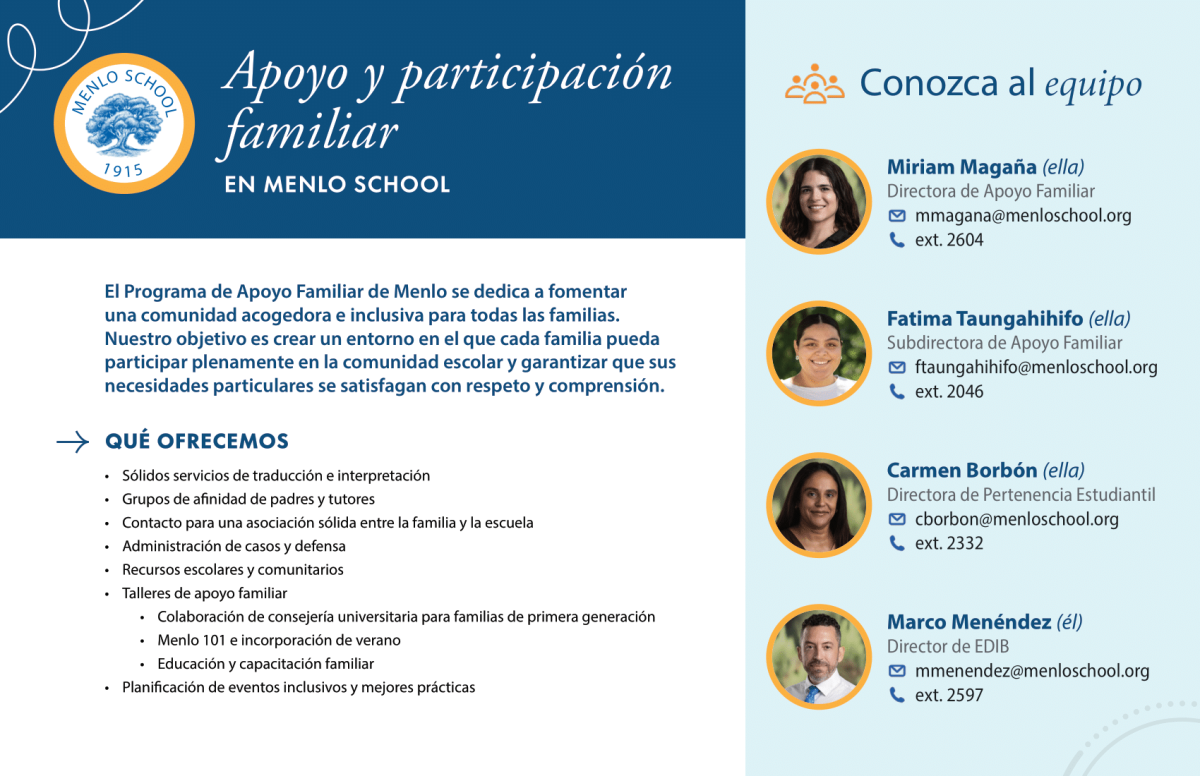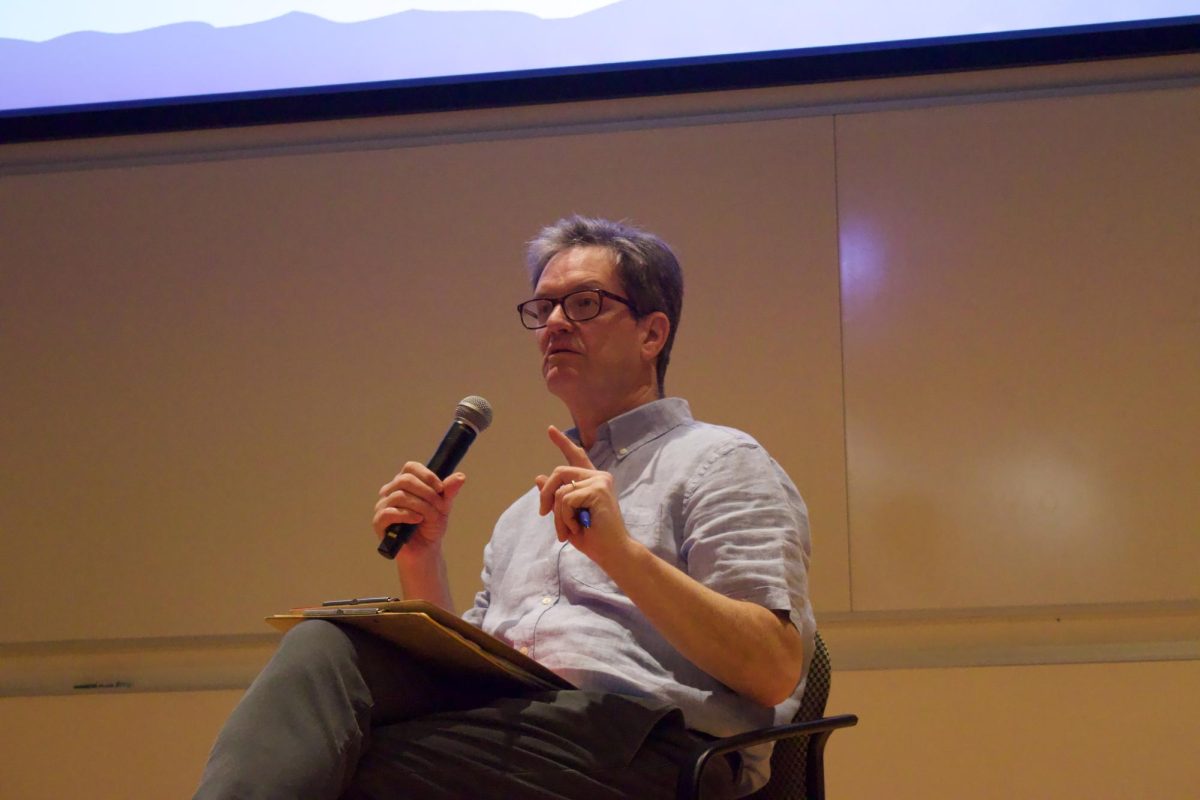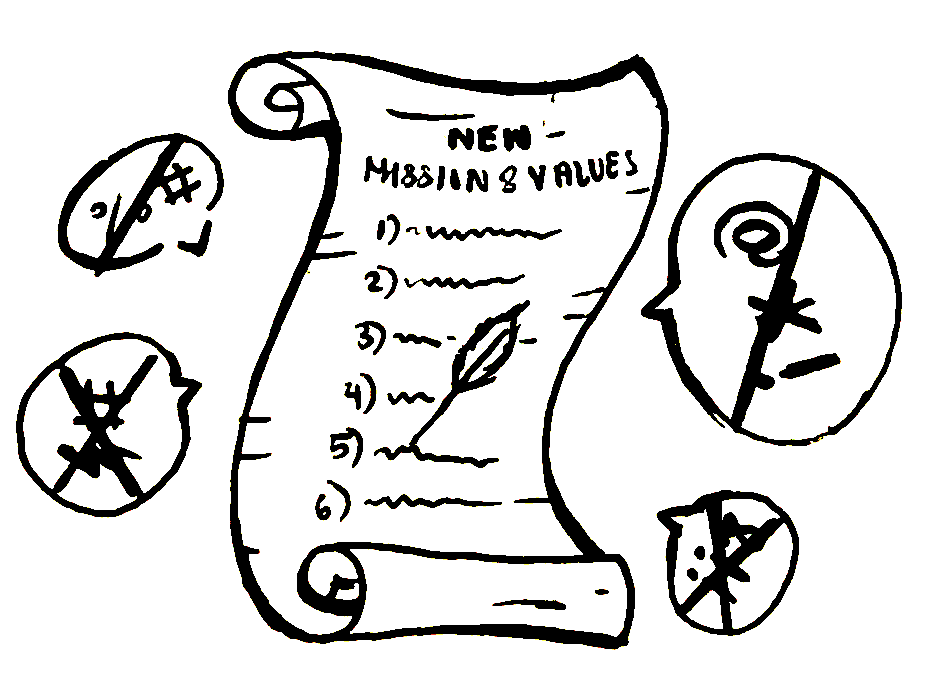Some faculty members are worried about the school potentially implementing several significant changes to the school, such as the new schedule, J-, or M-Term, and the “streams” or “concentrations” curriculum. Photo courtesy of Pete Zivkov.
This story has been updated to add a quote from an anonymous history teacher.
By Maudie Frye and Zoey Lieberman
In the context of Menlo’s Centennial year in 2015, the administration and Board of Trustees has been considering adopting multiple initiatives as Menlo moves into its second century. However, these present and future changes, specifically the new schedule to be implemented in May, a possible J-Term or M-Term, a three-week block of time dedicated to experiential learning outside of the classroom, and a potential “streams” curriculum have sparked concerns and questions from several faculty members. “There have always been teachers who think change is good and teachers who think change is bad,” English teacher Erik Wessler said.
While opinions vary based upon department, specific course, and other factors, three primary concerns have been expressed across the spectrum of teachers that were interviewed: confusion regarding the reason for large-scale change, the pace of rolling-out the possible initiatives, and the lack of a clear driver of these changes.
Considering Menlo’s success as a school and in the community, multiple teachers are abiding by the “only fix it if it’s broken” mentality, where they believe that these changes are unnecessary due to Menlo’s performance as an institution.“It’s not clear why now, and why these changes have to happen[…] some teachers who are probably more opposed would say it’s a problem of the fact that the school is being tinkered with or changed in ways that don’t seem to be needed at this time,” an Upper School history teacher, who wished to remain anonymous, said. “One way to produce anxiety among employees and teachers is to ask them to do something different than they’ve done in the past.”
Some changes, specifically J-Term or M-Term, would take away from valuable teaching time, which is a concern for many AP teachers. “For teachers who teach in other disciplines like AP classes, where there is a set curriculum that you have to get through in a year, I think there’s concern there,” Menlo math teacher Rebecca Akers said.
J-Term and the “streams” could force Menlo faculty to deviate from their current curriculum. “A lot of teachers feel that taking Knight School and multiplying that concept when Knight School itself is controversial is problematic,” an anonymous Upper School history teacher said.
Although M-Term is a valid possibility, the potential roll-out pace of this curriculum, in addition the “streams,” is concerning to various faculty members. “We jump very quickly at Menlo, we talk very briefly about the why, and then we jump right into how we get it to work,” Assistant Director of Instructional Technology and Upper School Chemistry teacher David Spence said. “I think the problem is that we need to extend the amount of time we’re talking about the why, and there needs to be a debate about the why.”
While conversation between teachers and administration may seem sparse to some faculty, the administration believes that there has been clear and concrete communication between the two parties as to the impetus of these two initiatives. “I hope I’m not speaking out of turn, but my view is that a lot of those ideas came from faculty conversations,” Head of School Than Healy said.
Although the origin remains unclear, the very nature of J-Term or May-Term and the Streams at its core feels different to multiple teachers than past changes at Menlo.“The thing that’s different in my opinion–and I think a number of teachers would agree with this–is that the other changes had a face,” Wessler said. “This time, the change feels faceless . . . nobody knows where this is going, nobody knows who’s really driving it, and nobody knows why it has to be done.”
This general confusion as to the driver of these changes is not an anomaly; five out of the six teachers that were interviewed expressed this same concern. “I don’t have the sense that it was an organic movement where faculty started talking here and saying, ‘Hey, what about a J-Term,’” Akers said.
Specifically, the Board of Trustees’ involvement has also been a point of speculation and concern for various teachers, who believe that their power in this situation is questionable. “A lot of people think it’s the Board, who aren’t teachers, who are parents that have some political clout, who might want these changes,” Wessler said.
However, administration believes that this aspect additionally has been addressed with effective communication between themselves and the faculty. “To say it’s [J-Term and Streams] coming from the board is just a projection, that’s not true,” Upper School Director John Schafer said. “If it’s coming from anywhere, it’s coming from the administration, and the administration believes that it’s in dialogue with the teachers.”
This miscommunication between the administration and faculty has fostered an environment that is not as welcoming as is ideal for the discussions regarding these initiatives. “It appears that it is very hard for faculty to disagree and feel safe, that their job is going to be safe, when they disagree with the administration,” Spence said.
However, due to the undeveloped state of J-Term and “streams,” administration believes that they must continue to make progress in the details of these changes in order to respond effectively to the faculty’s concerns. “One thing we can do to respond is to let people react to an actual proposal rather than a set of rumors,” Healy said. “I think that’s actually the first step: to put an idea in front of people that’s three-quarters of the way baked rather than having people react to the ingredients rather than the final outcome.”
According to Healy, a concrete proposal for these changes will be presented this spring. For faculty, this clarification is essential. “They’ve got to find a way to give some form of closure,” Wessler said. “If this keeps chronically going on like a festering wound, the morale will get worse.”








